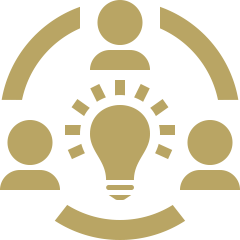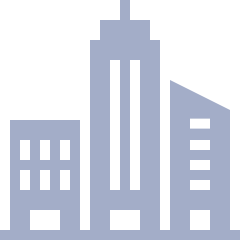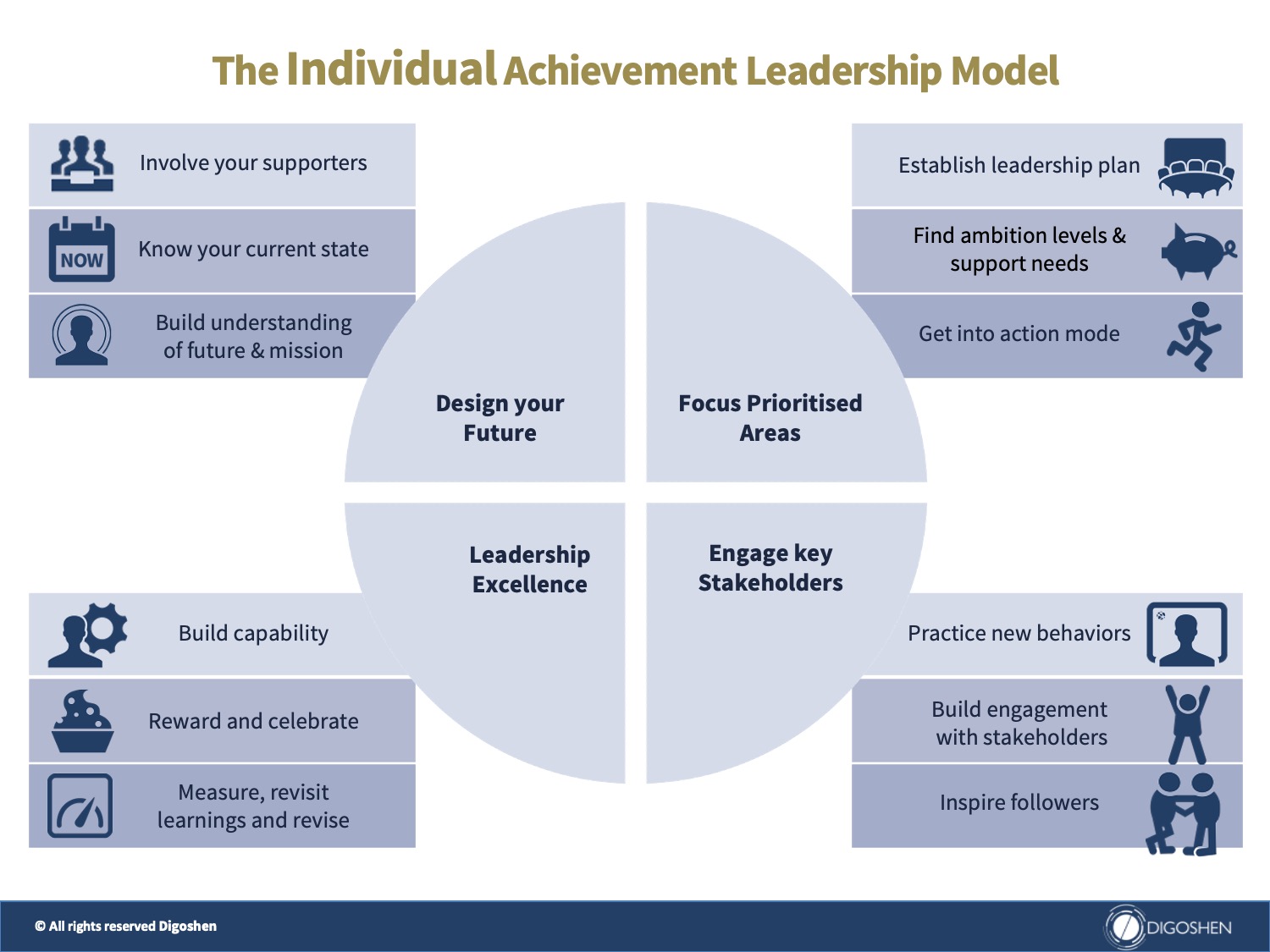Direction for 2021 requires innovation in sustainability and learning to live with uncertainty
The year gone by has provided us with unprecedented change, with the pandemic changing our lives, societies and businesses all around the world. And there will surely continue to be bumps in the road also this year.
“If uncertainty is unacceptable to you, it turns into fear. If it is perfectly acceptable, it turns into increased aliveness, alertness, and creativity.” — Eckhart Tolle
It is time to reflect on the important trends for the future, consider a reset and prepare a new game changing plan for the coming years.
The five long term major trends are still valid for 2021, however some trends got changed in content and priority for the coming year. And the uncertainty of the short term has increased dramatically. The five megatrends will continue to impact us and our future in our roles as leaders, citizens and companies. The trends, which we describe further below, are
- Technology Innovation
- Planet Resource Challenges
- Health, Social & Work Change
- De-Globalisation & Power Shift
- Urbanisation & Migration
We have updated insights about the trends, and for each trend we provide Curated Newsletter and Curated Podcast Lists to follow. We provide newsletters and curated podcast lists also for Leadership and Board Governanceto inspire the needed transformation processes . (This blogpost builds on an earlier blogpost “Trends for a Game Changing Plan” from last year)
As the traditional worlds top leadership event held by World Economic Forum in Davos, is just a week away, we will link the themes from the Davos event to the trends. This years theme is “The Great Reset” and it is also the first year we can all attend the WEF Davos event as it will be open and shared virtually.
For this year’s kickoff, we will keep an extra focus on some needed increased insights in Climate Strategy and on Social & Work Change through Technology Innovation.
Some of our particular challenges this year are
- the uncertainty of Covid-19 impact & recovery
- how we balance the interest of individuals, societies and businesses
- the need to refine our strategies (again), clarify our purpose with new digital business models and ecosystem collaborations
- how we deepen the incorporation of the climate and pandemic impact in our strategies
- to ensure both the physical and mental health of people, and increase the talent development
- ensure we improve data, our data handling, cybersecurity and use technology to increase all value creation
In order to handle our challenges we need to increase our monitoring and insights, and be prepared to innovate, adjust our strategies and reactions under the ongoing uncertainty.
“True security lies in the unrestrained embrace of insecurity — in the recognition that we never really stand on solid ground, and never can.” — Oliver Burkeman
![]() To help you define your own value proposition and game changing plan for both yourself and your organisation, we have summarized ways to create your plans for the year ahead further below.
To help you define your own value proposition and game changing plan for both yourself and your organisation, we have summarized ways to create your plans for the year ahead further below.
To guide the way and ensure the transformation to apply the trends shared further below, you can get continuous insights and inspiration to lead the way and create a prosperous future from our Digital Newsletters and curated Podcast Lists:
- > Board and Corporate Governance Insights
- > Strategy & Business Insights
- > Leadership Inspiration
- > Governance, Risk and Compliance Insights
This spring we also plan to release a book on Boards Leadership of Corporate Renewal and Innovation, we will contribute to papers and a book on modern Chairman Practices “Leading a Board”, and continue to contribute to board networks on modern board practices including climate governance.
We are sharing this also in more depth in key note speeches, content, virtual and blended courses. and hope that you can use this content as inspiration and come back to it as reference.
Five Mega Trends
 Trend 1: Technology Innovation
Trend 1: Technology Innovation
“What is now proved was once only imagined. ” William Blake
This trend includes both rapid advancement and is exponential at its core. It builds on previous technology breakthroughs as Internet, social media, digitalisation of our companies and societies. In the coming years, the way we work, fight, age, communicate, solve problems, travel, trade, exchange information, live in cities, solve crimes, do business, vote, and connect to our loved ones will all be changed due to technology.
We will need to keep increased focus on Data, as it will be increasingly considered the new most important asset. We will all need to boost data literacy, in order to use it and protect it. Data volumes have grown massively and cloud solutions allow us to access the data from anywhere. AI will learn to automate and help predict in most areas of work, health and energy. Automation will increase dramatically, and now with focus on white-collar jobs. Chatbots will increasingly take over customer service inquiries. We will see disintegration of companies and new ecosystems being formed. Improved virtualization and visualization will increasingly impact us through AR and VR. Cybersecurity will find new challenges, and solutions.
We will continue to see a materials nano impacted revolution and the integration with biology and humans will increase. The health innovation has skyrocketed over the last year and will continue.
While less than 5% of occupations consists of activities that can be fully automated, up to 30% of hours worked globally could be automated by 2030. The planet will continue to feel even smaller in 2030 as more people are able to communicate over the internet (90% of the world population will be able to read; 75% will have mobile connectivity; 60% should have broadband access), they will also move more. Almost all European cars will be connected to the internet in 2030
Get continuous insights on the topic of Technology Innovation from our Digital Newsletters and curated Podcast Lists:
- > Digital Leadership Insights
- > Digital Disruption Insights
- > Artificial Intelligence Insights
- > Innovation Insights
- > Entrepreneurship and Scaleup Insights
If you are a board member – don’t miss the academic research article we co-wrote “Innovation and Corporate Renewal also Disrupt Boards” with examples of transformative boards good practices.
Or the book which was the result of our academic research on AI and governance ; “AI Leadership for Boards” with guidance on six focus areas to guide and supervise.
The WEF insights to also provide further inspiration are WEF theme Tech for good and WEF theme Better Business.
 Trend 2: Planet Resources Challenges
Trend 2: Planet Resources Challenges
“The world is reaching the tipping point beyond which climate change may become irreversible. If this happens, we risk denying present and future generations the right to a healthy and sustainable planet – the whole of humanity stands to lose.” Kofi Annan, Former Secretary-General of UN
This trend of climate change and resource scarcity is on top of many responsible people, governments and company’s agendas, as its force of impacting the future is of existential importance.
The previous year of climate challenges and climate actions has increased our awareness of the subject. The Greta trend.. And enlightening movies like David Attenborough’s film “A Life on Our planet”, helped people see the challenge.
This year will also move insights of the underlying issues as plastics, food distribution, circular re-use and water consumptions to add to the catastrophic weather events, flooding and wild-fire. As we will see climate impact continue to challenge us, and we urgently need to use technologies and circular and sharing economies to find solutions, and diplomacy to find agreements, for a joint livable planet.
Even if last year and the COVID19 lockdown impact made global CO2 emissions reduce with about 7%, without systemic changes these reductions are merely temporary. Average temperatures on the planet are forecasted to rise by more than two degrees before 2100, much due to the burning of fossil fuels, creating significant and irreversible damage and increasing strain on global resources. Drought and floods will impact crop yields, regional heating and many highly populated coastal areas will be in consistent trouble as sea levels rise. The global demand for fresh water will exceed supply by 40% in 2030, and water will be a stressed resource, and it seems likely that many cities will be constantly in a state of water shortage. By 2030, the loss in productivity due to the hotter climate will mean the loss of more than 1.7 trillion euros globally. The shift from oil to clean energy will be inevitable, but also how to use energy more efficiently. The coinciding trend with driverless cars will drive for them to be electric to support the climate goals.
Businesses will be increasingly required to govern and be more transparent of their climate impact, included likely more regulations. Some businesses has already started, as more than 9600 companies disclosed their environmental impact through the non-profit CDP platform, a 14% increase from previous year. But with approximately 43000 listed companies in the world and more than 100 million private companies, we still have some way to go. Environmental redesign of products will be a key sub trend impacting food, textiles our lifestyle.
Investors are increasingly becoming aware and demanding a focus on ESG, Environment , Social and Governance, as a long term insurance to profit. The value of investors applying ESG factors to decisions has almost doubled over last four years, and is expected to continue to grow.
Find continuously updated insights on the topic of Planet Resources Challenges from our Digital Newsletters and curated Podcast List:
The WEF insights to also provide further inspiration is the WEF theme How to save the planet
 Trend 3: Health, Social & Work Change
Trend 3: Health, Social & Work Change
“We will have to spend the money to educate our people – not just the children, but also people getting misplaced mid-career – so that they can find new jobs.” Satya Nadella, CEO of Microsoft
The trend that will impact many of us will be the demographic, social change and work approach change. Many of our societies and companies are built for a different outset. We will be challenged in our welfare systems, our ways of working and our trust of societies, companies, politicians, news and each other. And our regulations will need to become more adaptive. The world should reach 8.5 billion people by 2030 and the fastest growing demographic will be the elderly, with the population of people over 65 years old at 1 billion. Europe is still expected to be the world leaders in quality of life, but with many uncertainties. The spend on healthcare will have to be offset with support of technology, as robots becomes our best friends. The amount of information collected on every person, product, and organization will grow exponentially, and the pressure to share that information will expand.
Our perspectives on the future of work will have to be explored with scenarios as the interdependency between businesses and societies are very high, and our transformation will include massive retraining and massive shift of work approaches, and still with unclear insights into how this will be funded.
For the critical skills the fight will be anchored around the company purpose and the meaningful work provided, and the engagement in continued training. The place and virtual collaboration will at the same time put pressure on real estate and the opportunity for critical skills to work from broader geographies. We will see an increasing focus on ecosystem collaboration, with fast changing industry dynamics as a result.
Continuously learn about the topic of Social and Work Change from our Digital Newsletter and curated Podcast List:
The WEF insights to also provide further inspiration are WEF theme Society and future of work and WEF theme Healthy Futures.
 Trend 4: De-Globalisation & Power Shift
Trend 4: De-Globalisation & Power Shift
“I find that because of modern technological evolution and our global economy, and as a result of the great increase in population, our world has greatly changed: it has become much smaller. However, our perceptions have not evolved at the same pace; we continue to cling to old national demarcations and the old feelings of ‘us’ and ‘them’.” – Dalai Lama
Population growth drives the regional growth in Asia and Africa to far surpass Europe and Americas growth. We will experience a challenge to our globalization and we will see power shifts taking place. We are also challenged to find agreement and a more equitable and fairer world. The year gone by, with the pandemic and geo-political challenges, supported a slower globalization. Due to the pandemic the 2020 saw an average GDP of -3.3%, however with an uncertain outlook for year 2021 of +5.2% according to the International Monetary Fund and The World Bank.
The average global economic growth will be around 4.7 % until 2025, making the world a richer place than today.51 Most of this growth will happen in the developing economies. Developed economies, too, will grow, although at a much slower rate. China is expected to become the world’s largest economy, surpassing the United States. Due to the pandemic the surpass change is expected to happen earlier than previously thought at around 2028.
We will see a more regionalized world, and China will become the new superpower with more than 200 cities with above 1 million inhabitants, already has more than 100 unicorns with a 1B USD valuation and is forecasted to be the largest user of the international patent system. However when we measure the GDP per capita then China will still be approx. 20-25% of Europe’s average GDP per capita.
Find more insights on the topic of De-Globalisation & Power Shift from our Digital Newsletter and curated Podcast Lists:
The WEF insights to also provide further inspiration are the WEF theme Beyond Geoplotics and the WEF theme Fairer economies .
 Trend 5. Urbanisation & Migration
Trend 5. Urbanisation & Migration
“Migration is an expressen of the human aspiration for dignity, safety and a better future. It is part of the social fabric, part of our very make-up as human family.” Ban Ki-moon
The rapid urbanisation is already ongoing, with many smart city initiatives to handle the impact. The current pandemic might change slow down some of the Urbanisation trends, however it might also reverse and increase some of the regional migration trends. Some of the other trends in planet resource challenges and power shifts are also increasingly moving more people into regional migration.
Currently about half of the world’s population lives in cites and that will grow to about 60%, ranging from 81% in developed countries vs. 56% in the developing world. More mega cities will still continue to be created. Urban agriculture will need to rapidly expand.
Between flooding, heat waves, and shifts in water availability, mass migrations will be likely. Data-driven technologies is needed that make buildings, the grid, roadways, and water systems substantially more efficient.
Get more insights on the topic of Urbanisation & Migration from our Digital Newsletter and curated Podcast List:
The WEF insights to also provide further inspiration are the WEF theme Beyond Geoplotics and the WEF theme Fairer economies .
Charting the Future
 Now, more than ever, we need to look towards the purpose of ourselves and the purpose of our companiesand chart our own path both professionally and for our business and to create our best future.
Now, more than ever, we need to look towards the purpose of ourselves and the purpose of our companiesand chart our own path both professionally and for our business and to create our best future.
And we will all be challenged on how to understand it and how to achieve it. But it is important to take out the direction and start the journey. For both organisation and for individual leaders.
“Trusting that there is a next step is the first step to figuring out what the next step is.” — Jennifer Williamson
Responsible Leadership for a Game Changing plan means as a Business or Organisation to
- monitor strategic trends and signals,
- outline scenarios for potential futures,
- define your viable purpose to achieve a better future and
- create the best value creation opportunities based on scenarios and the capabilities possible to build on,
- outline the value propositions
- focus on the long term and balance the short term,
- engage employees, partners in ecosystems, and customers in the journey,
- keep improving, experimenting and adjusting to quickly learn the best way forward.
”A leader is a dealer in hope.” Napoleon Bonaparte
Responsible Leadership for a Game Changing plan means as an Individual, you need to
- find the signals of future trends,
- building on your strengths and capabilities,
- finding the worthy purpose and main areas where you like to have your mission to be able to add value. You need to
- clarify your ambition in those areas for both and short and long term,
- define your value proposition as leader or board member
- find the resources or partners to co-develop and/ or support you on the journey, and
- find ways to experiment and find energy to stay the course.
If your actions inspire others to dream more, learn more, do more and become more, you are a leader. – John Quincy Adams
Now more than ever it is time for meaningful actions and we wish you a healthy, purposeful, action filled and prosperous 2021!
Sources: Thanks to insights shared for the Megatrends by IFTF, WEF, World Bank, Blackrock, MIT Sloan, INSEAD, RolandBerger, PwC, McKinsey, BCG, Deloitte, EY, KPMG, European Commission, OECD, Frogdesign, Trendhunter, Ericsson, InterstingEngineering, Trendwatching, Copenhagen Institute for Future Studies, Kairos Futures, Global Carbon Budget, Opimas, International Monetary Fund, Centre for Economics and Business Research and Digoshen Research
Three blogposts from last years for inspiration underpinning the insights above
_
_____________
This blogpost is shared both on the blog of Digoshen by Innovisa, www.digoshen.com, and on the blog of the Digoshen founder www.liselotteengstam.com .
At Digoshen we work hard to increase #futureinsights and help remove #digitalblindspots. We believe that Companies, Boards and Business Leadership Teams need to understand more of the future and the digital world to fully leverage the potential when bringing their business into the digital age. If you are a board member, consider joining our international board network and master programs.
To understand where you and your company stand in relation to digital business and leadership progress, take our survey at Digoshen.com/research and get a free of charge personalized report with recommendations on how to move forward. The survey is anonymous and takes about 15 minutes to complete.
You will find more insights via Digoshen Website and you are welcome to follow us on LinkedIn Digoshen @ Linkedin and on twitter: @digoshen and founder @liseeng



